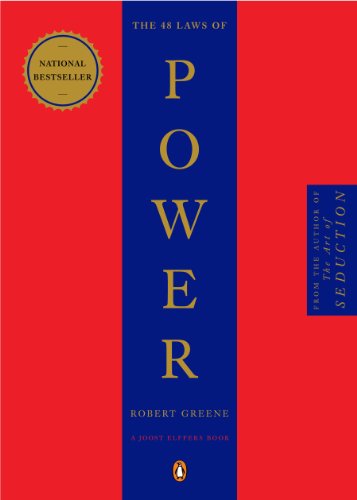

This article is an excerpt from the Shortform summary of "The 48 Laws of Power" by Robert Greene. Shortform has the world's best summaries of books you should be reading.
Like this article? Sign up for a free trial here .
Overview of Law #31: Control the Options: Get Others to Play with the Cards You Deal
To deceive people, seem to give them a meaningful choice. But sharply limit their options to a few that work in your favor regardless of which they choose. Your victims will feel in control, but you’ll pull the strings.
Principles of Law 31
We all like having choices, and often don’t notice that the choices we have can be very limited, whether in elections, our jobs, or the marketplace. We accept this, even though it isn’t fair, because the alternative, unlimited freedom of choice, is too overwhelming to contemplate. A limited range is easier to deal with and provokes less anxiety.
According to Law 31 of the 48 Laws of Power, the fact that most people aren’t bothered by limited choices creates great opportunity for deception. People won’t feel they’re being deceived if they have at least a small amount of choice.
Here are some ways to control the options for your benefit:
Spin the choices: Henry Kissinger often used this technique with President Nixon. He’d propose three or four choices presented so that his favored option always looked best compared to the others. This works well with an insecure boss like Nixon.
Advocate the opposite: Present what you don’t want as your favored option, and people who are contrarians will choose the opposite (what you do want). This technique works with children as well.
Change the playing field: When people are resisting, you can force their hand with this technique. When John D. Rockefeller wanted to create an oil monopoly, he changed the playing field by buying railroad companies. Then when he offered to buy an oil company, their choice was to either sell to him or face ruin when he raised shipping prices or refused to ship their oil.
Shrink the options: When you’ve given someone options and they’re not ready to decide, offer worse options each time they return with their answer. They soon figure out that today’s choices are better than tomorrow’s will be so they’d better get what they can immediately. This is an effective technique to use with indecisive people.
Emphasize the risks: You can steer a fearful person in the direction you want him to go by painting the other options as extremely risky. This tactic is similar to Kissingger’s method of spinning the choices, but with a timid person you need to be more aggressive and strike terror in his heart to stop him from procrastinating.
Two bad alternatives: With opponents, you can force them to choose between two bad (for them) alternatives, either of which benefits you. When General William Sherman marched through Georgia during the Civil War, he divided his army into two wings. Facing either of them was a bad option for the Confederate troops.
Putting Law 31 to Work
Here’s an example of how to apply Law 31 of the 48 Laws of Power: Ivan the Terrible lacked sufficient power as czar under Russia’s governing structure in the 1500s to do two things he needed to do: put down the boyars (a group of princes who continually tried to destroy him); and beat back external threats of invasion from all sides.
His response was to get the Russian people to voluntarily grant him absolute power. He achieved this by withdrawing from the palace for a while and letting the bloodthirsty princes run wild. When the people became sufficiently alarmed, he offered a choice: Grant him absolute power with no interference from the princes, or find a new leader. The people opted for a strong czar. They had become dependent on him.
Had he tried to take such powers by force, he would have stirred up resentment and subjected the country to civil war. Once people voluntarily gave him total control, they had less room to complain when he used the dictatorial powers they had chosen to grant him. Ivan the Terrible knew how to control the options.
Exceptions to Law 31
Are there any exceptions to Law 31 of the 48 Laws of Power? Should you ever not control the options? When dealing with opponents, it may be to your advantage to let them operate freely for a short time (rather than controlling their options) so you can observe their strategies. But in general, it’s most effective to follow Law 31 of the 48 Laws of Power: Control the Options.
———End of Preview———

Like what you just read? Read the rest of the world's best summary of "The 48 Laws of Power" at Shortform . Learn the book's critical concepts in 20 minutes or less .
Here's what you'll find in our full The 48 Laws of Power summary :
- Why you should never outshine your boss
- How to appear like a friend but behave like a spy
- The 6 rules you absolutely must not violate, if you want to be successful






